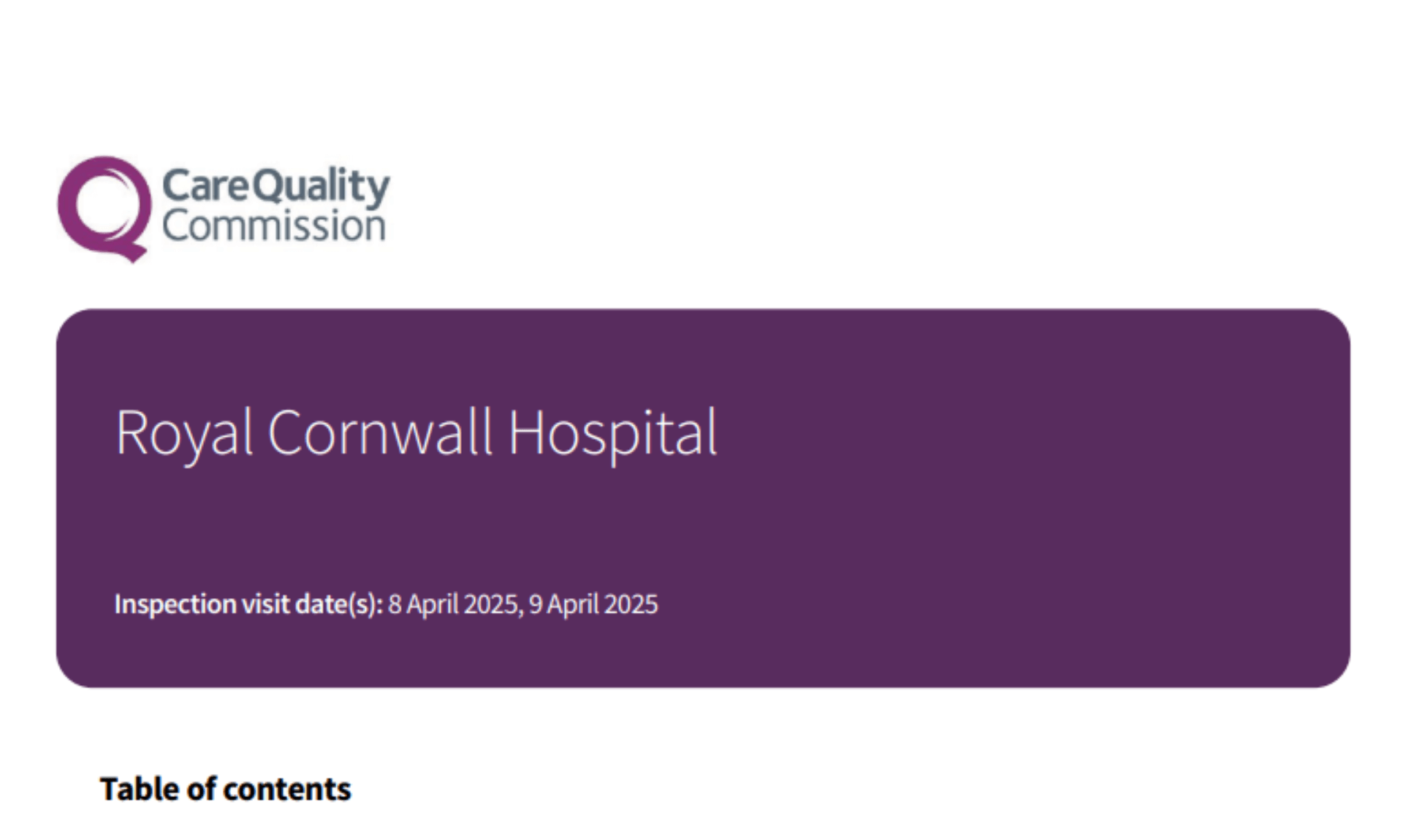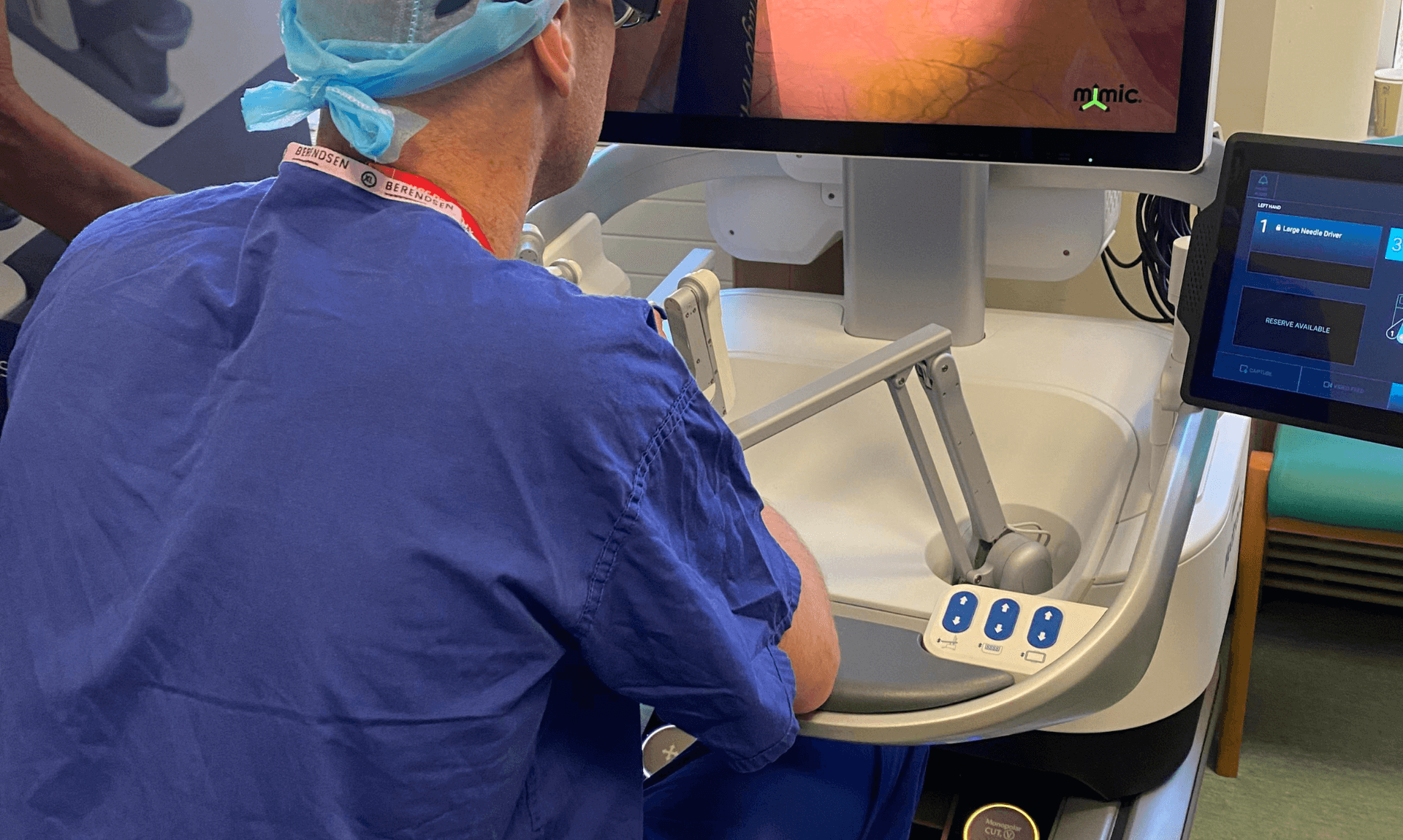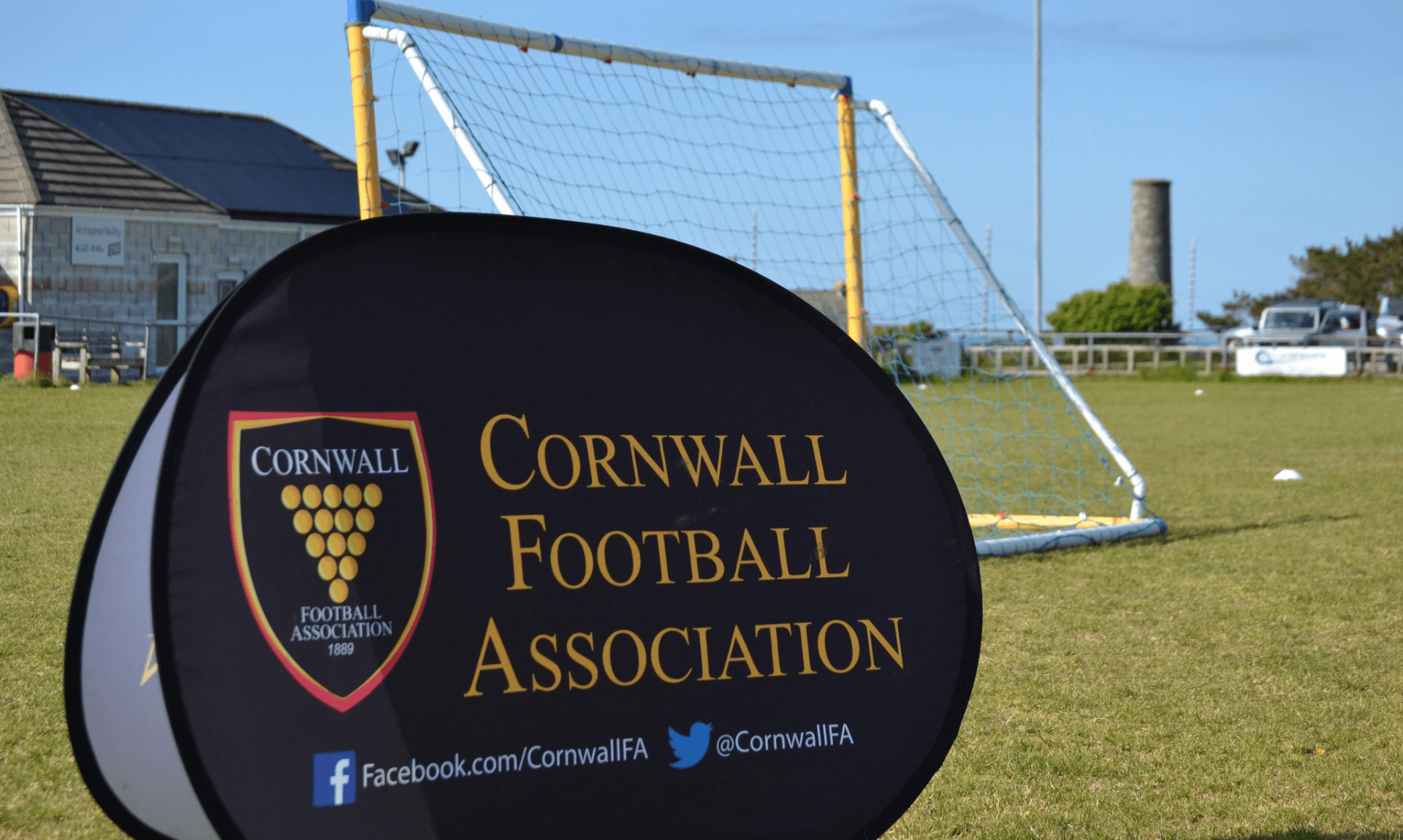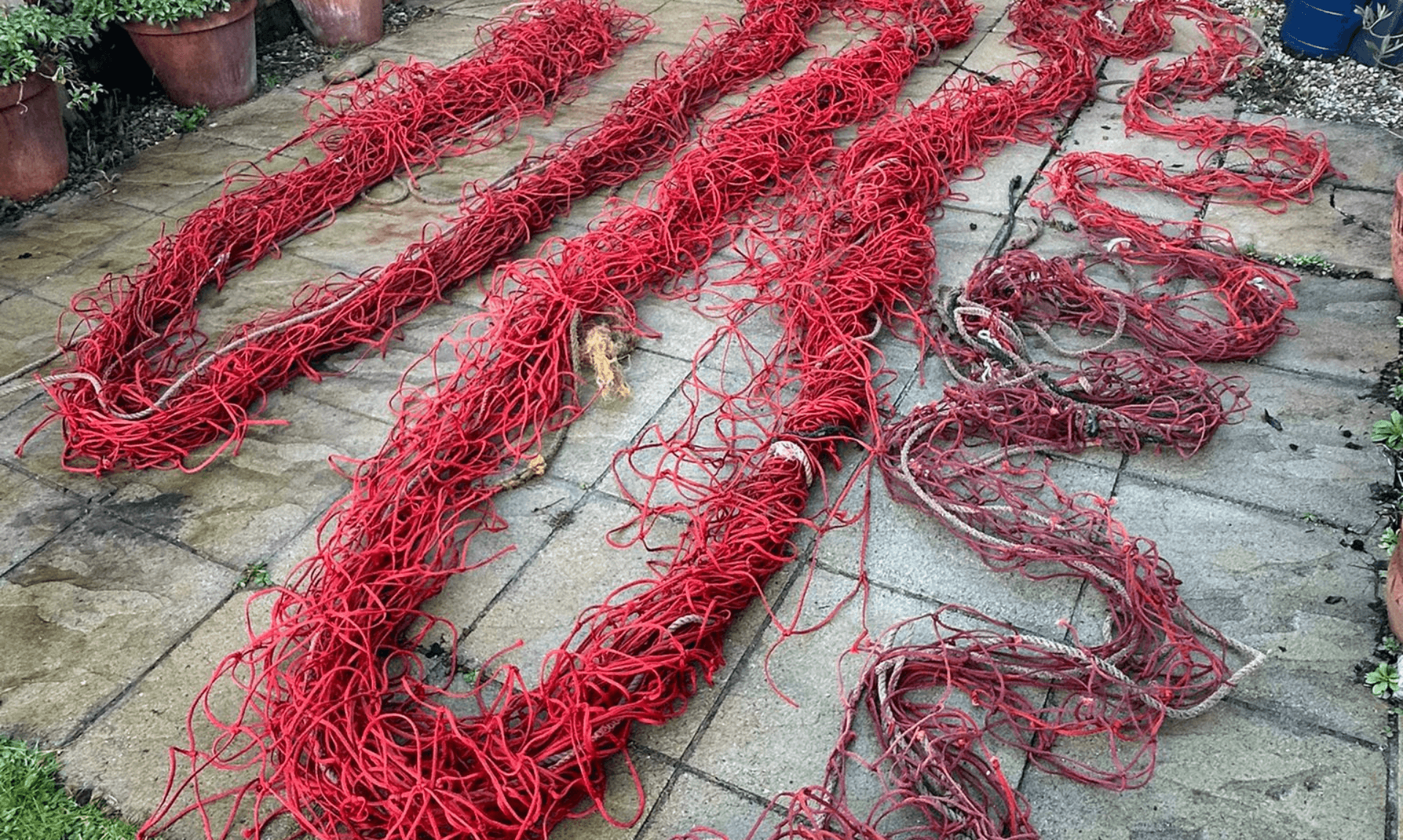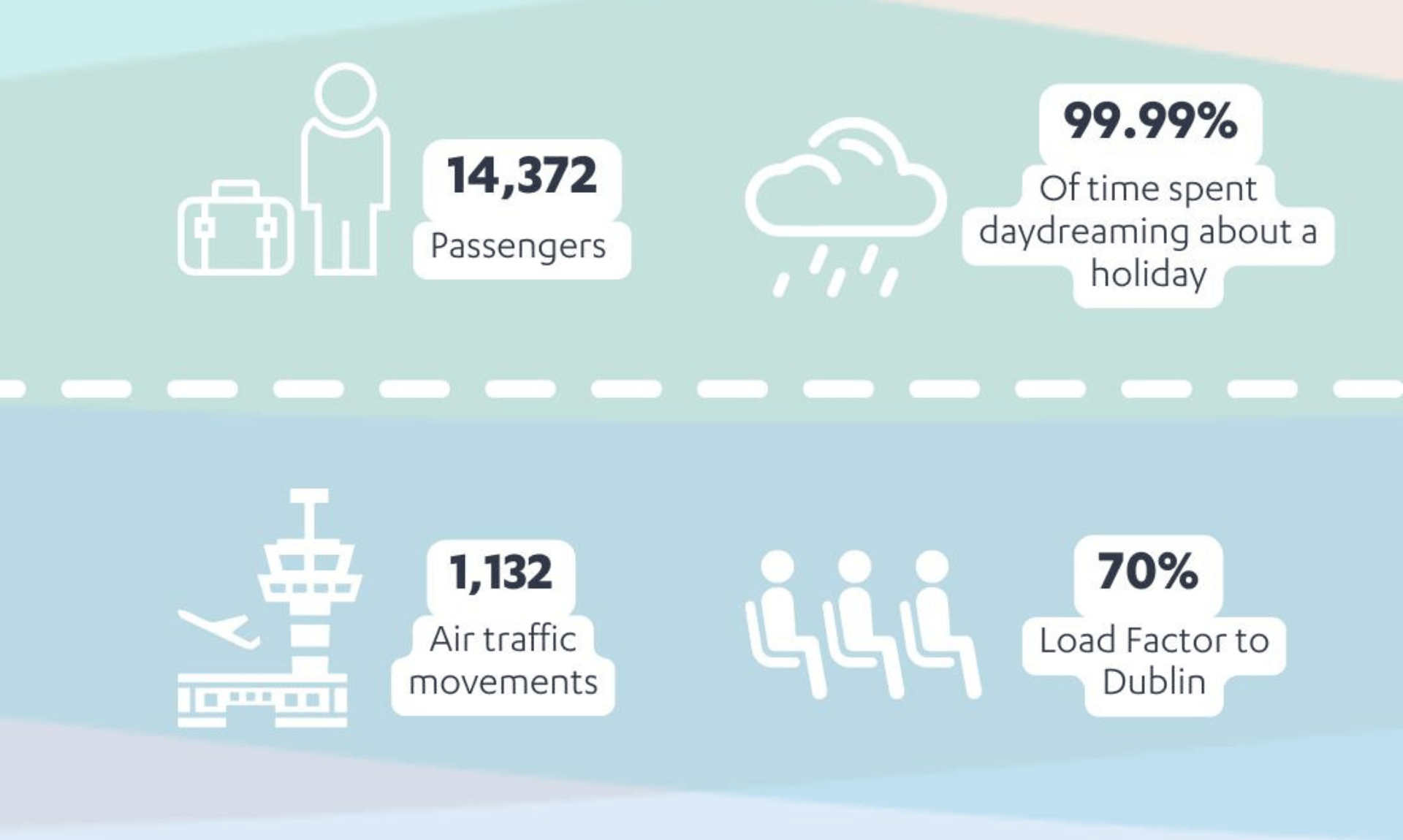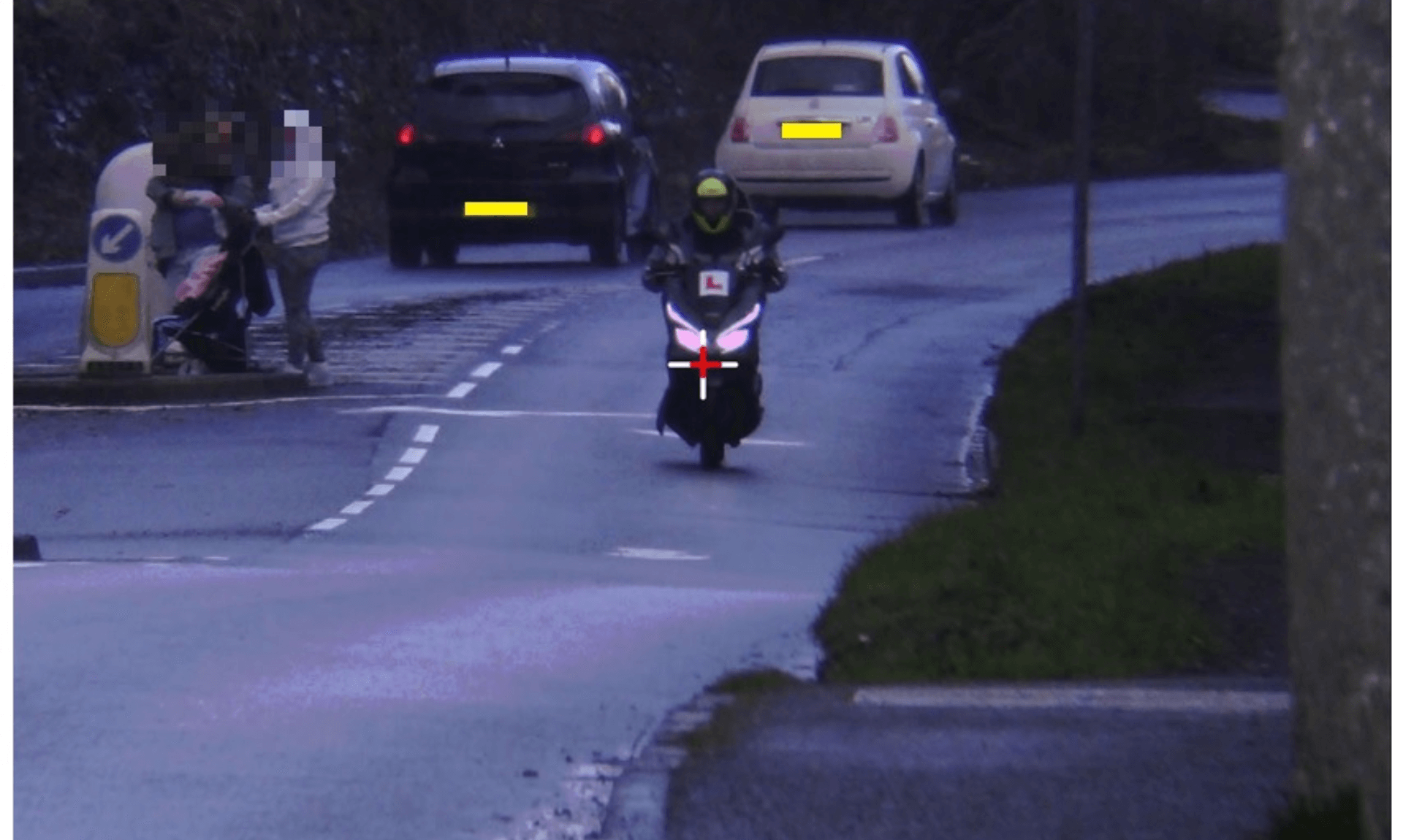CQC Rates Royal Cornwall Hospital as Requires Improvement After April Inspection
The Care Quality Commission (CQC) has told Royal Cornwall Hospital it must make improvements after inspectors again rated its urgent and emergency services and medical care as requires improvement following an inspection in April.
The findings, published today, Friday 29th August, highlighted ongoing concerns around dignity and respect, safe care and treatment, safe premises, staffing and management processes.
Overall Rating Declines
The CQC has re-rated Royal Cornwall Hospital as requires improvement, with the well-led category dropping from good to requires improvement.
-
Effective and caring remain rated as good.
-
Safe and responsive stay at requires improvement.
In medical care, both well-led and effective fell from good to requires improvement, while caring stayed good. Safe and responsive also remain at requires improvement.
For urgent and emergency care, inspectors found:
-
Safe and well-led downgraded from good to requires improvement.
-
Caring rated good.
-
Responsive rated requires improvement.
-
Effective upgraded from requires improvement to good.
The overall rating for Royal Cornwall Hospitals NHS Trust stays at requires improvement.
What Inspectors Saw
Catherine Campbell, CQC’s deputy director of operations in Cornwall, said:
“During our inspection of Royal Cornwall Hospital, we continued to find ongoing challenges that affected people’s care. In both medical and emergency services, staffing shortages and reliance on temporary staff disrupted continuity of care. Flow and capacity pressures also had a direct impact: transfers to escalation areas, long waits for ward beds, and crowding in emergency departments meant people waited longer than necessary, sometimes in environments that didn’t meet their needs or support their privacy and dignity.
“We also found risks in how staff managed medicines, including expired stock, poor labelling, and incomplete medicine records which created the potential for errors, putting people at risk of unsafe treatment. Leaders’ oversight and risk management processes didn’t always work well, with delays in investigations and incomplete reviews.
“However, alongside these challenges, we also saw some positive practice. Staff worked in strong partnership with others. In medical care, their links with community teams, discharge coordinators, and the integrated care system supported people to leave hospital more safely and without unnecessary delay. In emergency care, specialist teams such as learning disability services, homeless advisors, and mental health liaison were well integrated, helping people receive joined-up care that met their wider needs.
“We also saw a culture of learning and safety. Staff in medical care shared learning at safety briefings and team events, while in emergency care, proactive reporting of incidents and complaints led to improvements. This meant people benefited from staff who were constantly adapting and learning from past events to improve care.
“Despite pressures, staff remained committed to treating people with compassion, dignity, and respect. They communicated clearly with people and their carers, involving them in decisions even in busy and challenging environments. Senior leaders were aware of the issues and supported their teams to prioritise safety. The trust recognises where it must improve, and we will continue to work with them and return to check progress.”
Key Concerns in Medical Care
Inspectors found several safety issues:
-
Staff struggled to move people’s beds in some areas due to poor design and clutter.
-
Extra beds without call bells left people waving for attention.
-
On Phoenix ward, a chair blocked an exit and had no call bell or curtains.
-
Some patients reported not always feeling listened to, despite nursing staff advocating on their behalf.
Key Concerns in Emergency Care
The report raised risks around staffing and medicine safety:
-
Staffing shortages meant fewer paediatric nurses in the children’s emergency department.
-
Opened medicines were left without new expiry dates.
-
Broken cupboards meant unsafe storage, though some were repaired during the inspection.
-
The medicines preparation area was left unsecured at child height, posing a risk if staff were distracted.
What Happens Next
The CQC has told the trust to submit a plan detailing how it will address these concerns. Inspectors will continue to monitor progress to ensure patients are safe while changes are made.
Share This Story, Choose Your Platform!
To keep up with the latest cornish news follow us below
Follow CornishStuff on Facebook - Like our Facebook page to get the latest news in your feed and join in the discussions in the comments. Click here to give us a like!
Follow us on Twitter - For the latest breaking news in Cornwall and the latest stories, click here to follow CornishStuff on X.
Follow us on Instagram - We also put the latest news in our Instagram Stories. Click here to follow CornishStuff on Instagram.
You Might Also Be Interested In
Don’t Miss What’s Happening in Cornwall
Join others in Cornwall by receiving the latest daily news in Cornwall, sent direct to your inbox.

